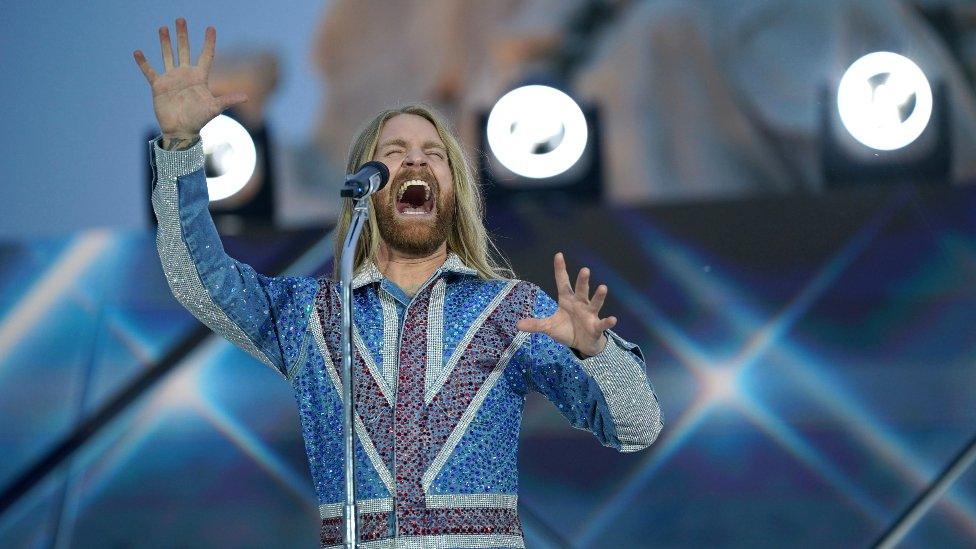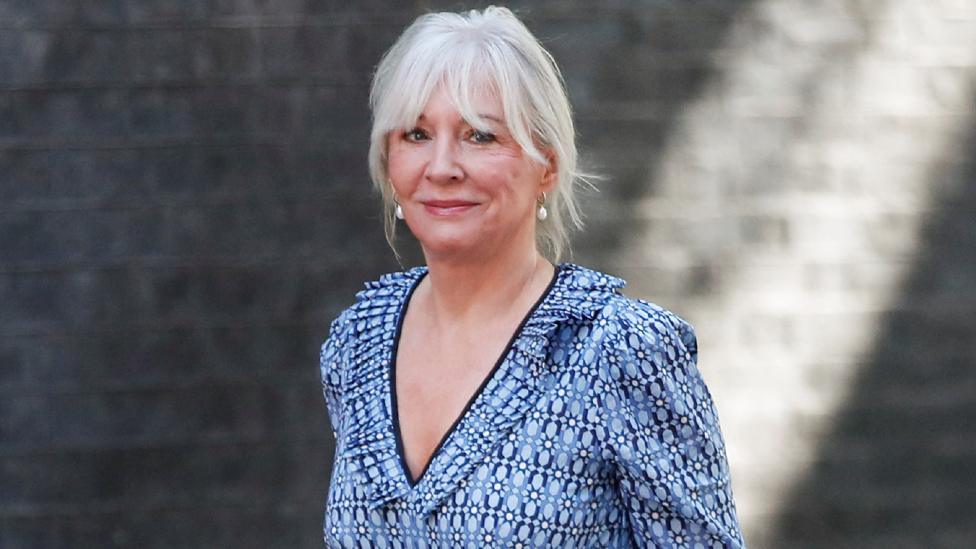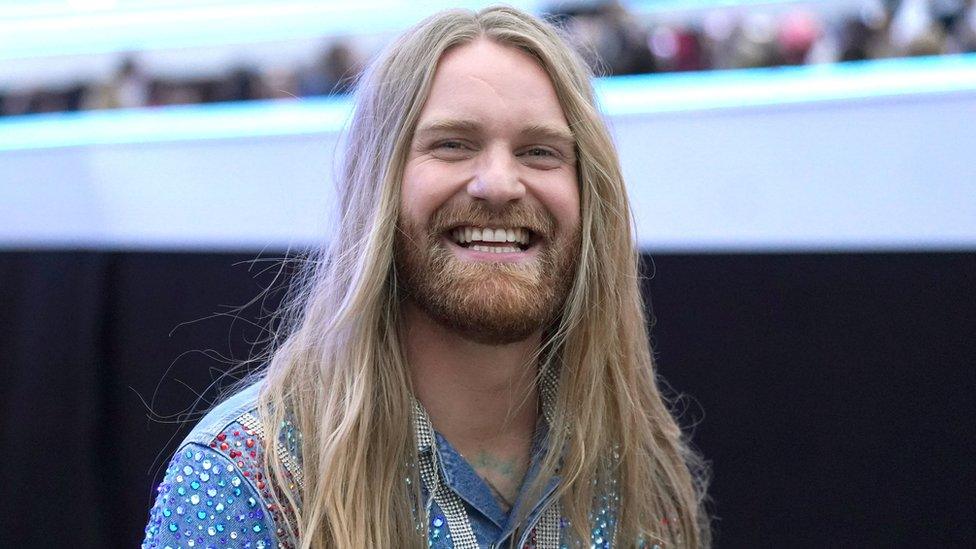Eurovision: EBU 'understands disappointment' over Ukraine hosting decision
- Published

The Kalush Orchestra, fronted by Oleh Psiuk (pictured) won this year's contest with their song Stefania
The body behind Eurovision says it "understands the disappointment" over its decision not to hold next year's song contest in Ukraine.
The country's entrant Kalush Orchestra won the contest in May in a symbolic show of public support.
Normally, that would mean Ukraine would host the competition next year.
But the European Broadcasting Union (EBU) announced last week it could not be held in Ukraine following Russia's invasion.
Instead, the EBU said it was in talks with the BBC to host the contest in the UK. British entrant Sam Ryder came second in this year's contest with his single Spaceman.
The announcement was met with disappointment by Ukrainian Culture Minister Oleksandr Tkachenko, who issued a statement "demanding to change the decision".
"Hosting Eurovision 2023 in Ukraine is a powerful signal to all the world," he said, adding: "We believe that we will be able to fulfil all our obligations."
Mykola Chernotytskyi, head of the managing board of Ukrainian broadcaster UA: PBC, said: "It is a pity to see such an unappealable statement [from the EBU]. Therefore, we ask our partners to hold further negotiations."
But on Thursday, the EBU doubled down on its position,, external saying in a statement that it "fully understands the disappointment that greeted the announcement".

UK entrant Sam Ryder, pictured at the Queen's Jubilee Concert earlier this month, came second at this year's Eurovision
"The decision was guided by the EBU's responsibility to ensure the conditions are met to guarantee the safety and security of everyone working and participating in the event, the planning of which needs to begin immediately in the host country," the broadcasting body said in a statement.
"At least 10,000 people are usually accredited to work on, or at, the Eurovision Song Contest including crew, staff and journalists. A further 30,000 fans are expected to travel to the event from across the world. Their welfare is our prime concern.
"It is therefore critical that decisions made in relation to such a complex live television event are made by broadcasting professionals and do not become politicised."
The EBU noted that the contest's rules, which are agreed upon by all broadcasters, clearly state that the event could be moved in a situation such as an ongoing war.
It added that third party expert security advice had been sought, which found that the risk of a mass casualty event due to the conflict was high.
"Alongside the security concerns, the continued conflict in Ukraine makes delegations and participants reluctant to travel to the country," the EBU said.
It noted that no other major international concert tours are scheduled to visit Ukraine throughout 2023.

Culture Secretary Nadine Dorries has publicly backed Ukraine to host the contest next year
After the decision was announced last week, Prime Minister Boris Johnson said: "The Ukrainians won the Eurovision song contest. I know we had a fantastic entry, I know we came second and I'd love it to be in this country.
"But the fact is that they won and they deserve to have it. I believe that they can have it and I believe that they should have it."
He was supported earlier this week by Culture Secretary Nadine Dorries,, external who said she had been in touch with Mr Tkachenko, her Ukrainian counterpart.
"We remain 100% supportive of our friends in Ukraine being given the opportunity to host Eurovision next year, and demonstrate to the world the enduring richness of Ukrainian culture and creativity," she tweeted.
"We call upon the EBU to review their decision and to ensure that Ukraine's proposals are given full and proper consideration. They won it, they quite rightly want to host it."
The Kalush Orchestra, who won Eurovision with their single Stefania, are set to play at the Glastonbury Festival this weekend.
Related topics
- Published15 May 2022

- Published17 June 2022
